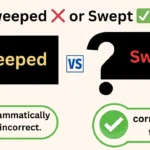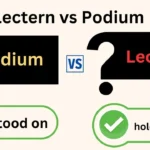Last updated on October 24th, 2024 at 01:38 pm
When it comes to spelling, small differences can often lead to big debates. One such debate revolves around the terms “nighttime or night time.” Are they interchangeable? Is one form more correct than the other?
This article aims to unravel the mystery behind these two terms, providing clarity and practical insights into their correct usage.
Confused about whether to use “nighttime” or “night time“? The correct form is “nighttime,” now the standard in modern English.
As a compound word, it simplifies writing and is widely accepted in both formal and informal contexts.
Learn how the shift from “night time” to “nighttime” evolved, why it’s preferred in American English, and how to use it correctly in your writing.
Get clarity on grammar with our expert breakdown! Discover the full guide today!
Understanding the Correct Term: ‘Nighttime or Night Time’?
The confusion between “nighttime” and “night time” is common, yet each has its specific usage in the English language.
“Nighttime” is a compound word formed by combining “night” and “time” into a single term. It denotes the period of time during which it is night.
On the other hand, “night time” (written as two separate words) is less common but sometimes used to describe the same concept.
In most contexts, “nighttime” is preferred because it has become the standard term in modern English.
This preference is backed by authoritative language sources and is a result of the natural evolution of language.
The Transition from Two Words to a Single Compound
The evolution from “night time” to “nighttime” illustrates a broader trend in English where separate words are often combined into compounds for simplicity and efficiency.
Historical Perspective
Historically, many compound words started as separate terms. For example, “night time” was used in older English texts.
Over time, language trends favored the more streamlined “nighttime.” This shift is part of a general linguistic tendency to simplify and standardize language.
Examples of Similar Transitions
- “Everyday” (from “every day”)
- “Basketball” (from “basket ball”)
- “Anyone” (from “any one”)
These transitions highlight a pattern where commonly used phrases become more compact and easier to use.
Consulting the Authoritative Dictionaries
To understand the current standard, it’s essential to consult authoritative dictionaries. They offer the most reliable guidance on accepted spelling and usage.
Dictionary Comparisons
- Merriam-Webster: Defines “nighttime” as a noun and an adjective, indicating the period from sunset to sunrise.
- Oxford English Dictionary: Lists “nighttime” as the preferred term and provides similar definitions.
- Cambridge Dictionary: Confirms “nighttime” as the standard spelling in modern English.
These definitions illustrate that “nighttime” is widely accepted and used in formal and informal contexts.
Struggling with English? Elevate your skills with our expert guides and tips—unlock your potential At Talk Speaker!
Language Evolution and Current Usage Trends
Language evolves over time, influenced by cultural, social, and technological changes. Understanding these trends helps clarify why “nighttime” is now the preferred spelling.
Evolution Factors
- Cultural Changes: As English-speaking cultures adapt, so do their language practices.
- Technological Influence: The rise of digital communication has accelerated changes in spelling and grammar.
Statistical Data
Recent studies on word usage reveal that “nighttime” is overwhelmingly preferred in both written and spoken English. For instance, Google Ngram Viewer data shows a marked increase in the use of “nighttime” compared to “night time” over the past decades.
‘Nighttime’ in American English: The Accepted Standard
In American English, “nighttime” is the established standard. This is confirmed by various style guides and usage manuals.
Style Guide Recommendations
- APA Style: Recommends “nighttime” for clarity and consistency.
- MLA Style: Lists “nighttime” as the correct form in academic writing.
Usage in American Media
Reputable American publications, such as The New York Times and The Washington Post, predominantly use “nighttime”. This consistency reflects its acceptance and standardization in American English.
The Grammatical Roles of ‘Nighttime’
Understanding the grammatical roles of “nighttime” helps clarify its usage and ensures correct application in writing.
As a Noun
“Nighttime” functions as a noun to denote the period of darkness.
Example Sentences:
- “During nighttime, the city transforms into a quiet, serene place.”
- “The child’s fears were more pronounced at nighttime.”
As an Adjective
“Nighttime” can also serve as an adjective, describing other nouns.
Example Sentences:
- “They enjoyed a nighttime stroll along the beach.”
- “The nighttime sky was clear and full of stars.”
‘Nighttime’ as a Noun Explained
When used as a noun, “nighttime” specifically refers to the period from sunset to sunrise.
Detailed Explanation
- Definition: Refers to the hours of darkness or the period when it is night.
- Usage: Typically used to describe activities, conditions, or phenomena occurring during these hours.
Example Sentences:
- “She prefers working during nighttime due to fewer distractions.”
- “Wildlife behaviors often change during nighttime.”
Descriptive Use: ‘Nighttime’ as an Adjectival Noun
As an adjectival noun, “nighttime” describes characteristics related to the night.
Explanation
- Function: Acts as an adjective to modify nouns, indicating that something pertains to the night.
- Usage: Used to describe features, conditions, or activities associated with nighttime.
Example Sentences:
- “The nighttime landscape was illuminated by streetlights.”
- “They planned a nighttime event to observe the stars.”
Common Usage and Example Sentences Demonstrating ‘Nighttime’
To further illustrate the use of “nighttime,” here are some common contexts and example sentences:
Common Contexts
- Sleep and Rest: Describing sleep-related activities or conditions.
- Events and Activities: Referring to events or activities that occur at night.
- Natural Phenomena: Describing natural occurrences during the night.
Example Sentences
- “The nighttime temperature dropped significantly.”
- “She enjoys the quiet of nighttime for reading.”
- “The nighttime view from the hill was breathtaking.”
Common Queries
1. Which is correct: “nighttime” or “night time”?
Answer:
“Nighttime” is the correct and preferred form in modern English, though “night time” may still be used in certain contexts.
However, “nighttime” is now more widely accepted.
2. Is “nighttime” a compound word?
Answer:
Yes, “nighttime” is a compound word formed from “night” and “time.” It refers to the period from sunset to sunrise.
3. Why is “nighttime” more common than “night time”?
Answer:
Over time, English has evolved to simplify phrases, turning “night time” into the compound “nighttime” for efficiency and clarity.
This trend is similar to other compounds like “everyday” or “anyone.”
4. Can “nighttime” be used as an adjective?
Answer:
Yes, “nighttime” can function as both a noun and an adjective. For example, “nighttime” describes the night in sentences like “They went for a nighttime walk.“
5. Is “nighttime” standard in American English?
Answer:
Yes, “nighttime” is the accepted standard in American English, as endorsed by style guides like APA and MLA.
Conclusion
In conclusion, the term “nighttime” is the correct and preferred spelling in modern English.
This article has clarified its usage of “nighttime or night-time“, historical evolution, and grammatical roles. By adhering to this standard, you ensure clarity and consistency in your writing.

Amelia Harris, a passionate educator, simplifies English grammar and vocabulary for learners of all levels. With her engaging style, mastering English has never been easie




